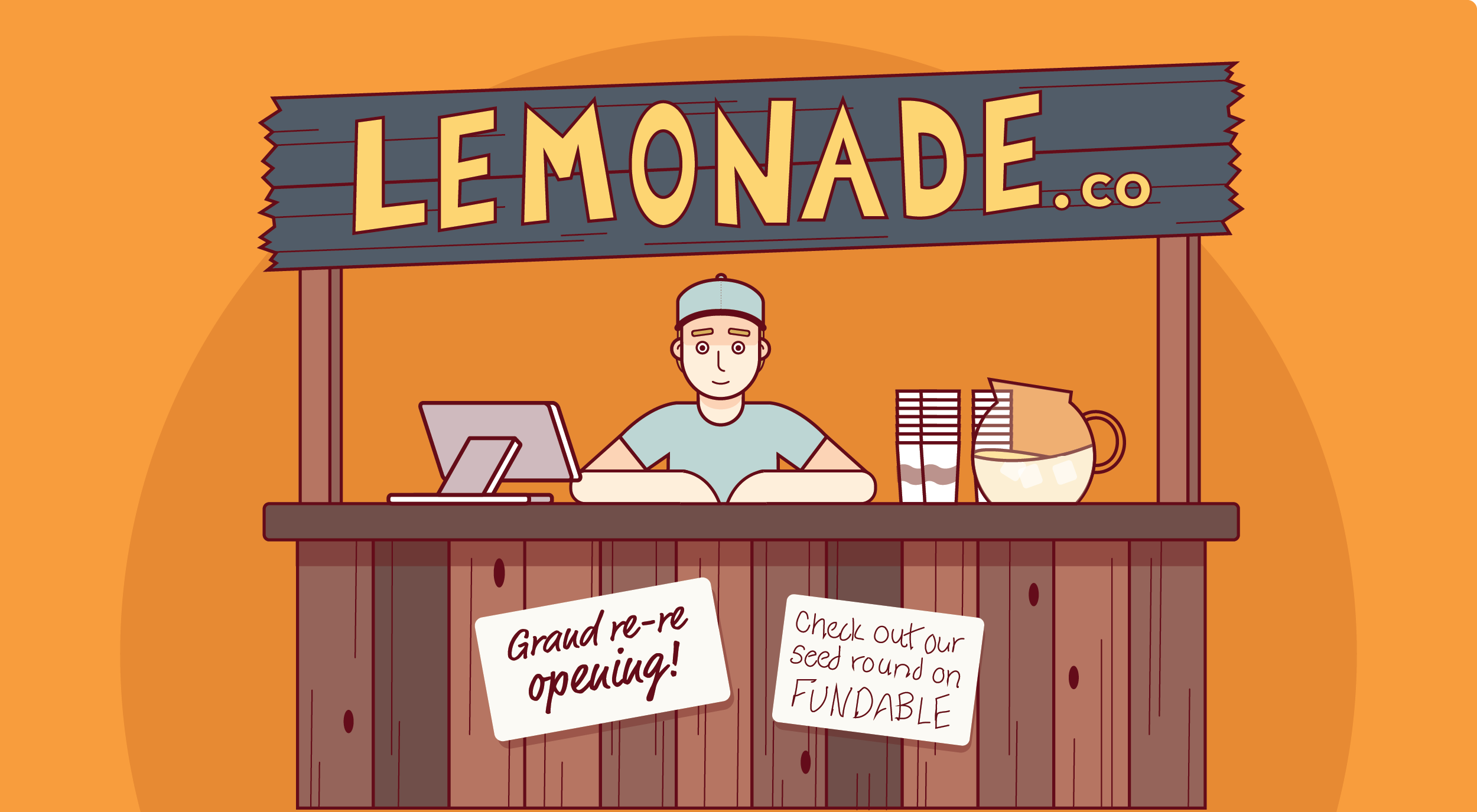The Startups Team

Welcome to Phase One of a four-part Splitting Equity Series make sure to read Introduction - Early Startup Equity — Getting it Right before continuing on if you haven’t already.
Phase One - Startup Equity — Avoiding Early Mistakes ( ←YOU ARE HERE 😀)
Phase Two - How Startup Equity Works
Phase Three - How to Split Equity
Phase Four - Equity Management
We are excited to guide you through your equity-splitting experience. Let's continue!
Before we make a single equity split decision about co-founders or any of our founding teams, please read this section carefully. Nearly every bad decision startup founders make in setting up their equity splits is contained here.
This lesson is a primer on splitting equity among two founders or more and how to have a serious dialogue among co-founders before we simply do a "fair equal split" or some other simplistic approach. The problem the founding team runs into is that they just don’t take their equity splits seriously, and don’t realize what a huge mistake it was until it’s too late.

The 3 Common Mistakes of Founder Equity Splits
Co-founders all run into 3 common mistakes which incidentally also apply to dealing with family members now or future investors down the line. So the sooner we understand the challenges before we split equity the better.
#1 Don't Treat Equity like Monopoly Money
The curse of early equity in a startup is that it feels as though it’s “free” to the Founders. 9 seconds ago, we had this amazing idea for a venture and now people are willing to work for us for the promise of a payout sometime down the road. We wind up with an exclamation like this:
"Our Web Designer is working for free! She only wants 15% of the company."
The moment we go down this path — the path of thinking that equity is Monopoly money that we just printed and can’t believe people will take in exchange for real value — we have already lost.
Our equity is the single most valuable piece of currency we will ever have in our lives. It’s more valuable than money and it is (probably) the only asset class we will likely own that will be worth exponentially more than it is worth today. We don’t get it back.
Every time we decide to give away equity we are reducing the future payout that we will work the rest of our career for. It’s not that we shouldn’t use equity — it’s a staple of the startup economy — it’s that we as the founder, or founding team, need to seriously respect just how valuable it is.
#2 Understand the Future Value of Equity
Every time we give away a share of equity, we not only give away its present worth — we give away all the value it will have for the rest of our startup lives.

Food for Thought
Imagine if I had $1 when I was 10 years old, and that $1 would magically produce another $1 every single year like clockwork. By the time I was just 20 years old I would have given away not only that dollar, but the $10 it produced each year. By the time I’m 100 (cyborgs, people!) I would have given away $90 in future earnings. Whatever I spent, that $1 had to be worth at least $90 of value lost. That’s equity.
Add 7 Years to That
Now let’s play that out for our wonderful graphic designer who helped build our website 7 years ago. She still owns 15% of the company. Every year we make $250,000 in profit, which is wonderful. Every year we send her a check for $37,500 as her 15% share of the profits. Every. Year… Forever!
Her website wasn’t even that awesome, but we were foolish enough to think that “just 15%” was a deal. It’s not. Her contribution may have helped get the company started, but we didn’t appreciate the time value of equity when we just gave it away — and now we’re paying for it for the rest of our lives.
We could have solved this problem in so many other ways. We could have given her a capped share of profits: “You normally charge $10k, we’ll give you back $50k over some period of time.” We could have given her a small amount of cash and less equity. We could have done anything but give her an equity split that gives her unlimited access to a lifetime supply of our hard-earned work. Founders, we just needed to fully appreciate the “value of equity” to force those early decisions.
#3 Give Equity as Slowly as Possible
Not only do the founders of startups run into the issue of treating equity like Monopoly cash, but they also tend to have a fascination with giving it away all at once — upfront. If it were cash we’d never think to do that, but for some reason, we’re compelled to think that the equity split should come in the form of a lump sum payment regardless of services rendered.

“Elmer Fudd is joining us to lead Business Development (he’s a great hunter). We’re going to give him a 10% stake of the company so that he can go chase the big customers.”
Why did we just pay Elmer 10% of the company based on bold assumptions? Has he actually sold any big customers yet? Why are we paying him in our most valuable currency — all up front — in hopes that he might be useful? That’s nuts. Why not let him earn his equity over a period of time so that if he does what he says he’s going to do, he indeed gets his 10%? But if he doesn’t, we didn’t just grant him some huge stake without any payout!
If we were to compare this to cash, it would look just as ridiculous:
I was just handed $1 million to build my business. I’m going to pay everyone that works for me their entire yearly salary all up front in hopes that they stick around and work hard. In some cases, I’m going to pay them 2 – 4 years of salary all up front because I really want them to be invested!
If this sounds insane – it’s because it is! Now, we’ll cover this in great detail throughout the course with things like “stock vesting schedules” and “clawbacks” that will help protect us a bit, but the bigger point is that we don’t want to just hand out equity quickly. We want to create agreements where there is the potential to earn more, but not giant Christmas gift-level grants!
See a Pattern Forming?
By now there’s a clear pattern forming — giving away early equity quickly and without some serious consideration is a recipe for disaster.
That doesn’t mean we don’t have options for how we can manage our equity or give it out. It just means that when we do, we want to look way past where we are today and think about the greater needs of the business long term.
OK, One Last Time, and then I’ll Shut Up
You’re going to work the hardest hours of your life in this company. Please be careful about who you give it away to. As a fellow Founder, no one believes you deserve the fruits of your labor as much as I do and if this final plea causes you one moment of pause before you give away a single share, my work is done here!

Get it in Writing
If it’s not in writing — it didn’t happen.
Of all the things that we don’t recall well — where we left our keys, our anniversary date, or the name of Willow Ulfgood’s arch nemesis in the movie, Willow (spoiler: it was “Mr. Burglekutt”) — not having 100% recollection of how we divided the most valuable asset in our company should not make that list!
When it comes to equity — the only conversations that matter are the ones we get in writing. Everything else is just “an understanding.” Save yourself and your co-founder or co-founders tough decisions and a difficult conversation down the road by putting equity rights in writing.
Handshake Deals = Bad Deals
There are many times where a quick handshake deal can work out great. If you ask me to help you move your stuff into your apartment in exchange for buying me a pizza and vodka (my rates are very specific) — we can shake on that. If we’re talking about dividing up an asset that could be worth a billion dollars — ehhh — we may want to write this one down!
Write it Down Early and Often
There’s no reason we need to wait until we’ve got a final consensus on our equity arrangements to begin committing things to paper (or email). We can begin formalizing each of our steps individually and then eventually wrap them all into a single finalized document with our friendly startup lawyers.
Fun Ways to Commemorate Important Stuff
Send an email to multiple people (will have a server timestamp)
Sign multiple copies of a printed document (even if it’s not the final version)
Seal and Mail the signed copies to yourself (it will get a postmark that is semi-official)
Use an online signature service like Hellosign (which takes like 10 minutes to setup)
Commit the agreement into the bare face of the stone with a chisel (it worked for P&G, it’ll work for you. Just kidding, don’t really do this, but if you do, please send me a photo.)
For example, we could isolate a single decision, such as how we want vesting to work, with the subject line “Team Agreement on Stock Vesting Schedules of Four Years” and begin the thread to include all members of the staff that would be affected. This not only makes sure that everyone focuses on a single issue (which is important) — it also creates multiple time-stamped copies of the same communication in case it needed to be referenced later.
However, a lot of this discussion may happen on a whiteboard in a meeting or on a road trip to a new potential client. They may be entirely offline. That’s fine. What we’ll need to do in that case is simply send a follow-up email, even if it’s just the two of us, to capture what was said, but also to provide a forum for rebuttal in case one of us didn’t understand the agreement in the same way. That’s just good communication.
Do, or Do Not. There is No “Try”
When it comes to making decisions around equity — we can’t have fuzzy answers. If you think the valuation is $1 million and I think it’s $2 million — we need a number — we need a commitment. If you think Elmer Fudd our BizDev guy should have 10% of the stock and I think he should have 15% based on his contributions — we need a number.
Even if we don’t agree, we need to document the fact that we don’t agree. It doesn’t have to be contentious either. I can write you a note that says:
Yesterday we talked about adding Elmer as a co-Founder. You suggested his stake should be 10%, and I suggested it should be 15%. We don’t have a final answer but let’s agree we need to get to one.”
What we’re trying to avoid is a mistake in the form of a “he said/she said” or “I think we might have agreed upon X...” kind of conversation that only leads to difficult issues. We either agreed on a fixed number when it comes to stock or we didn’t. If we didn’t reach a commitment, we documented our respective proposals for later reference.
Time to Wheel in the Lawyers
Once we’ve gotten a basic consensus on our key issues (and we’ll walk through those throughout this course) we can then bring in a lawyer to “paper it up.”
Good lawyers will advise that the more we can have discussed and determine before we call them, the more smoothly our documents will get drafted. Bad lawyers who need cash will suggest we run every thought and suggestion through them. They are also quite expensive.
Our goal right now will be to present and discuss the substantive issues amongst ourselves and then take whatever we have decided upon (and perhaps a few issues in contention) and ask our attorneys to translate these decisions into binding, sign-able legal docs.
Can we do this on the cheap through a $99 “DIY” service? Actually, we can. But it’s less likely that the Mad Libs-style document we’ll have selected will accurately cover the key decisions we need to make in splitting equity in our startups. It will likely give potential investors pause. We’re not here to advocate for lawyers, but for this one — it’s a solid investment.
Summary
So that’s it — let’s be stingy as hell with our stock and make sure any discussion that’s substantive to splitting equity is captured in writing.
We’re about to make some massively impactful decisions among our team but we need all of us to have the same mindset around how important it is. The moment we start taking it less seriously — any of us — that’s the moment this whole process breaks down.
If we’re serious about our equity and our decisions are all committed in writing so that we can have a beautiful legal doc to keep us all on the rails — we win. It’s just that easy.
OK, it’s not “that easy” but it sure helps.
Find this article helpful?
This is just a small sample! Register to unlock our in-depth courses, hundreds of video courses, and a library of playbooks and articles to grow your startup fast. Let us Let us show you!
Submission confirms agreement to our Terms of Service and Privacy Policy.
Already a member? Login
No comments yet.
Start a Membership to join the discussion.
Already a member? Login